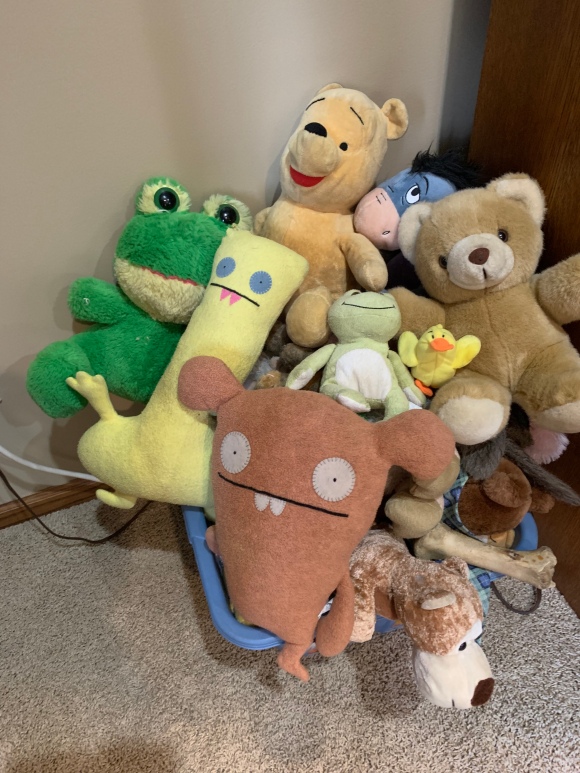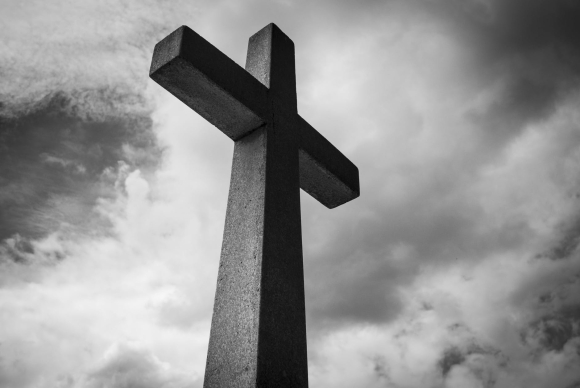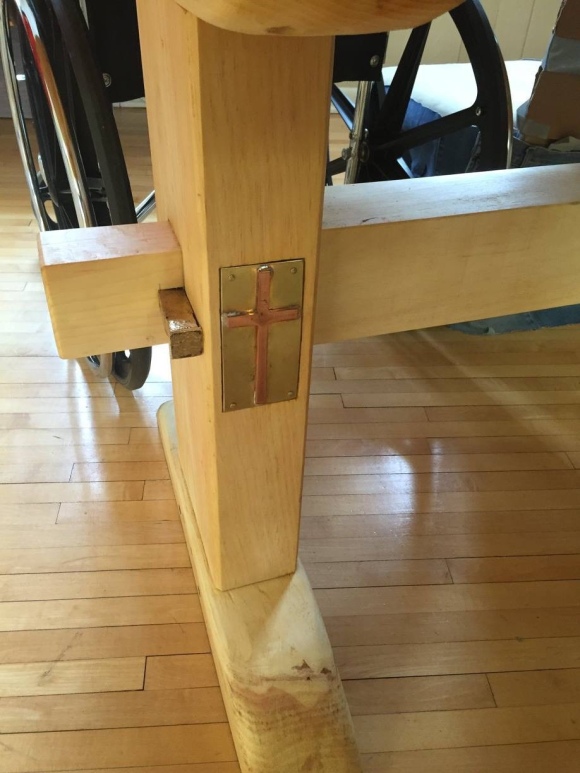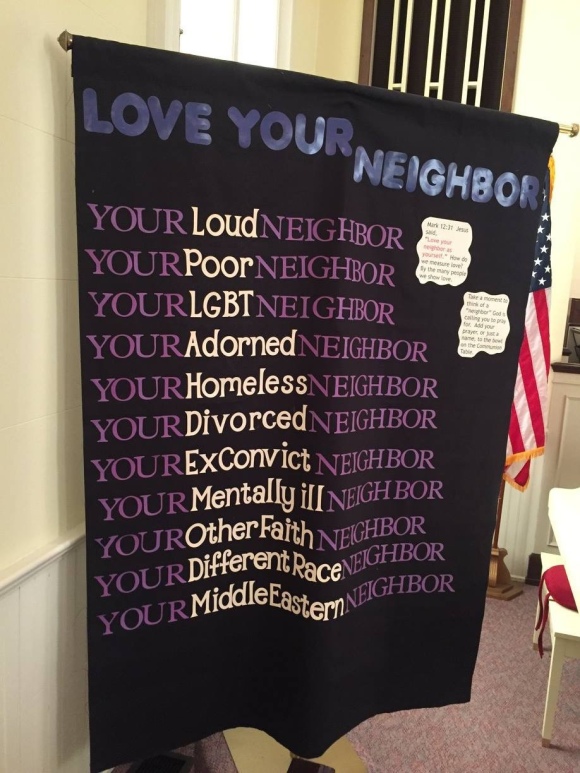Twenty two years ago I was reflecting on the décor for my expected baby’s nursery. I decided to go with Noah’s ark. That would be cute. Pairs of animals placidly walking up a gangplank to salvation. Beautiful sunsets each evening on the deck with animals contentedly making their respective noises. How sweet.
Never mind the backdrop to the story. In Genesis 6 we read of God’s deep displeasure with creation. Human violence has corrupted the perfect home that our Creator fashioned for us. Evil seemed to be the mark of being human and any hints of that divine spark within each one of us was extinguished. Except for one family, God would purge the evil with a flood, doing a reboot to this earth with a nucleus of just one family. Such a cute story! Watching the torrential rains fall unceasingly in Texas last week was not fun entertainment. That original water chaos in Genesis was terrifying: drowning on a scale never seen before nor since. All human efforts and wildlife were destroyed—save for one boat carrying precious cargo on an endless sea. A great bedtime story for my little newborn!

We jump ahead to chapter eight when the waters finally recede. Noah and his crew are able to leave the boat and we see what God saw in this man: faith. Noah builds a fire and sacrifices from his cache of protected animals to express his gratitude to the God who saved him. It is the odor of this blessed barbeque that captures God’s attention. In fact, this act of worship seems to turn God’s heart. Never again, the architect of our world proclaimed. The divine spark in Noah fanned into full flame as he recognized God’s mercy in the protection of his family from death. We are given a rare insight into God’s own heart. We almost hear God singing an original song:
“As long as the earth endures, seedtime and harvest, cold and heat, summer and winter, day and night, shall not cease.”

The basic rhythms to a fruitful world shall resume. The rhythms that we take for granted to a world that flourishes through predictable seasons will continue. So as Noah’s world dried out, the surviving seeds performed their duty: they took root, grew, and produced a harvest.
In 2003 several of us from our congregation went to a building seminar because the idea of adding on to our facility had been brewing for a good long while. Another group went to a seminar in 2007 to lay the groundwork for such a bold endeavor. We decided not to hire an outside fundraiser but put before our people the opportunity to contribute to a wing that would house offices and classrooms for our growing children’s program. I don’t think that any of us at that 2007 seminar could have imagined that a mere two years later, amidst a national recession that crushed most dreams, we would begin raising money to turn this dream into a reality. But we moved forward because a relatively small group of members said they thought we should finally launch the building program. They were ready to back this with their own money. In July of 2009 the machinery started cranking forward for this wing where our children now sit with their teachers learning to love Jesus.
By the time we broke ground our congregation was sick of hearing appeals for the building fund. It took us almost three long years to get ready to build so that we could honor the conviction that we build it mortgage free. Who does that these days? What kind of a crazy vision is that? Maybe something ludicrous like Noah and his family hammering boards together in an arid climate to construct an enormous boat. That must have stood out from the landscape like the concrete castle on the southern end of Grand Rapids! “What on earth is this monstrosity”, Noah’s townspeople must have laughed!
But we listened to each other during this seed-planting time. We took the necessary amount of time to raise the money and watch the vision take root and grow. We made prayerful decisions about the blueprint, using our own members as builder and architect. We chose an exterior design that would honor our historic building. We incorporated the needed technology of cables, carrier, and countless other decisions. What if a few people had bulldozed their way into this project, pushing it along faster and dishonoring the voices from the congregation? It took us 2 ½ years of wrangling with the City of Rockford to tear down a house immediately south of our sanctuary where the driveway now swings through. We took the time needed and God granted us victory time and again so that our plan for a Christian Education Wing could serve us well. The Sunday that we dedicated it to God’s service our children tore up a faux mortgage document. Now, seven years later, our Sunday School classrooms will be used several weeks per year as temporary shelter for homeless families. We could not have considered becoming a Family Promise congregation without that wing. Many times one harvest leads to another because we use in faith what we have to shape the future. From seed time to harvest, we invited God to walk with us.
My father-in-law loved seeds. He was a science teacher, a botanist really, and he collected seeds wherever he went. In the last years of his life, as his eyesight failed him and he could no longer drive, he would direct us to certain places so that he could retrieve his beloved seeds. One day we were driving from a doctor’s appointment in Grand Rapids and he asked if we could swing over to Woodlawn Cemetery. “Of course”, I replied with curiosity. Although he couldn’t see well he knew which meandering trail to follow through the cemetery. We arrived alongside a tree with branches that were within reach from his car window. He told me there was a very small window of time that the seeds from this tree would be available and this was one of those days. I will never forget the image of this old man reaching out for seeds he would never be able to plant knowing that a good farmer always collects seeds for the next harvest.
The pivotal moment in this story about old Noah is found in Genesis 8:1: “But God remembered Noah and all the wild animals and the livestock that were with him in the ark, and he sent a wind over the earth, and the waters receded.”
A moment of Divine remembering changes the situation from hostility to commitment. God’s memory of a man and his family floating along in the watery mess of a sinful world brought an end to the deluge. In Job’s agony after suffering staggering loss, he cried out to God in Job 14:13: “Remember me.” Isn’t that our prayer? Job’s raw cries to his Maker remind us that our prayers don’t have to be polite. The Psalms are full of human emotions and questions launched at God: How long, O Lord? Why do the evil prosper? Why do my enemies surround me? Where are you, my God? We cry out like the forebears in our faith and God answers.
What is our response when we realize that our prayers have been heard? We remember God! We sacrifice, like old Noah did with his sea legs finally on terra firma. And God smells the fragrant aroma of our gratitude and promises, “Never again.”
Dr. Hugh McKean of Chiengmai, Thailand, tells of a church of four hundred members where every member tithes. The Biblical mandate is that we offer a tithe—10% of our financial well-being for holy purposes. These Christians receive a weekly wage of forty stangs (which is less than a quarter) and their rice. Out of this meager wage, each contributes 10% to their church. Because of this, they have done more for Christ in Thailand than any other church. They pay their own preacher and have sent two missionary families to spread the gospel in a community cut off from the outside world. They are intensely interested in all forms of Christian work, especially work for unfortunates of every kind. They have not only accepted Christ, but, having found Him good, they are making Him known to others. And one other interesting fact about this church of all tithers: every member of this generous congregation has leprosy. From their tiny harvest they plant seeds for the growth of Christ’s kingdom!
The greatest generosity typically comes from those who understand suffering, those who know what it is to be dependent on the care of others. Those who have been in dire straits live with gratitude for God’s mercy and want to give back. In our times of need we are particularly reminded that we are utterly dependent on God. Like Noah, we offer our thanks through humble worship and sacrifice.

Generations after faithful Noah climbed into an ark in obedience to a dishonored God, the prophet Isaiah served as the mouthpiece for this same God. The people to whom he preached had strayed far from the divine plan for their lives. They had been overtaken and carried off into captivity. They marched hundreds of miles away from their homeland and sat in despair as slaves of the Babylonians. Disheartened by their defeat Isaiah offered words of promise from the God they were sure had abandoned them: “But now, this is what the LORD says- he who created you, Jacob, he who formed you, Israel: ‘Do not fear, for I have redeemed you; I have summoned you by name; you are mine. 2When you pass through the waters, I will be with you; and when you pass through the rivers, they will not sweep over you.’”

Noah’s ark: a sweet bedtime story for our children? Not so much! But it carries within its tale of destruction the love of a God who provides a bountiful harvest in spite of our sin. That’s the good news we share with each new generation.
























